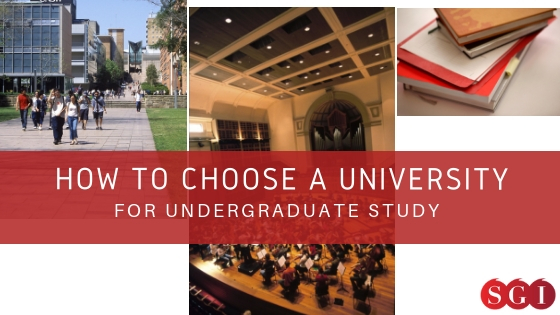
There are approximately 130 universities in the UK, not counting other institutes of Higher Education and the plethora of online providers, so it is not surprising that narrowing down the options can be a tricky task. In our English language school, we have helped many students as they take one of the most important decisions of their lives which undergraduate course is the best for me? The most obvious factor to consider and compare is the course content: a program may have the same or very similar title in different institutions, but the structure and subject matter may vary considerably. Therefore, you should not simply rely on an overview of the course, but read the syllabus in detail to fully understand what the university is offering in terms of content. This information will also give you an idea of the kind of workload you are expected to take on the number of hours you have to attend lectures and seminars; the type of assignments you will need to hand in and how they are assessed; the integration of field trips, work placements and study abroad may also be factored into the course provision. Once you ve identified the course(s) you re interested in, there are still some aspects of the institution you ought to consider before taking the plunge.
Entrance Requirements
You may have found the perfect course for you, but do you meet the requirements of the university? In most cases, you will need to provide evidence of previous study, a particular IELTS score and a statement demonstrating your motivation to study. You may need to complete a University Foundation course: this entails a year of study that will enable you to apply for an undergraduate degree in the UK.
Tutors
It s a good idea to find out who is responsible for delivering the course and what their research specialism and areas of interest are. Your tutors can provide valuable advice and networking opportunities so it is vital to make sure they are working on the aspects of your subject that interest you.
Location
Our surroundings impact how we feel and can therefore affect our success while studying. For this reason, you ought to think carefully about where the university is located. London is a great place to be a student and caters to a wide variety of needs, interests and preferences.
Accommodation
Universities can usually suggest a variety of accommodation options from student halls of residence to independent flatshares. Do you prefer to live alone or share with others? If it s the latter, what kind of people are you prepared to live with? If you are staying in university accommodation, it is also worth checking their policy on changing rooms/flats if you are unsatisfied for whatever reason.
Social life
In the UK, universities are considered to be hubs of social, as well as academic, activity. There are likely to be a number of clubs and societies available to join and covering a range of interests e.g. sports, politics, arts, religion.
Careers Guidance
It s all very well gaining a university education, but what happens next? To what extent will you be supported in your next steps towards employment, work experience or further study? It s a good idea to find out what networking opportunities are provided throughout the course, and who you can speak to for advice on your career path ahead.
Finally, make sure you attend an Open Day or arrange a visit to your shortlisted universities so you can see them first-hand.
S.L.L.
This article was written by English teacher S.L.L at St George International Language School, a London English School helping students develop their English language skills for over 50 years.

